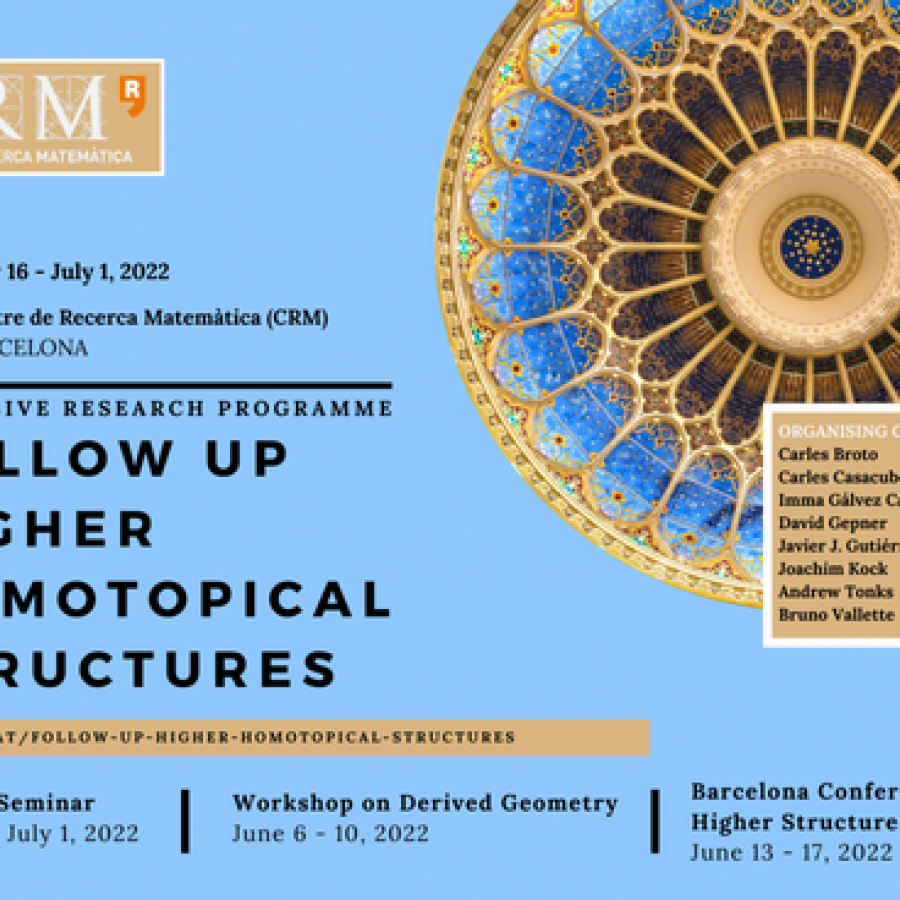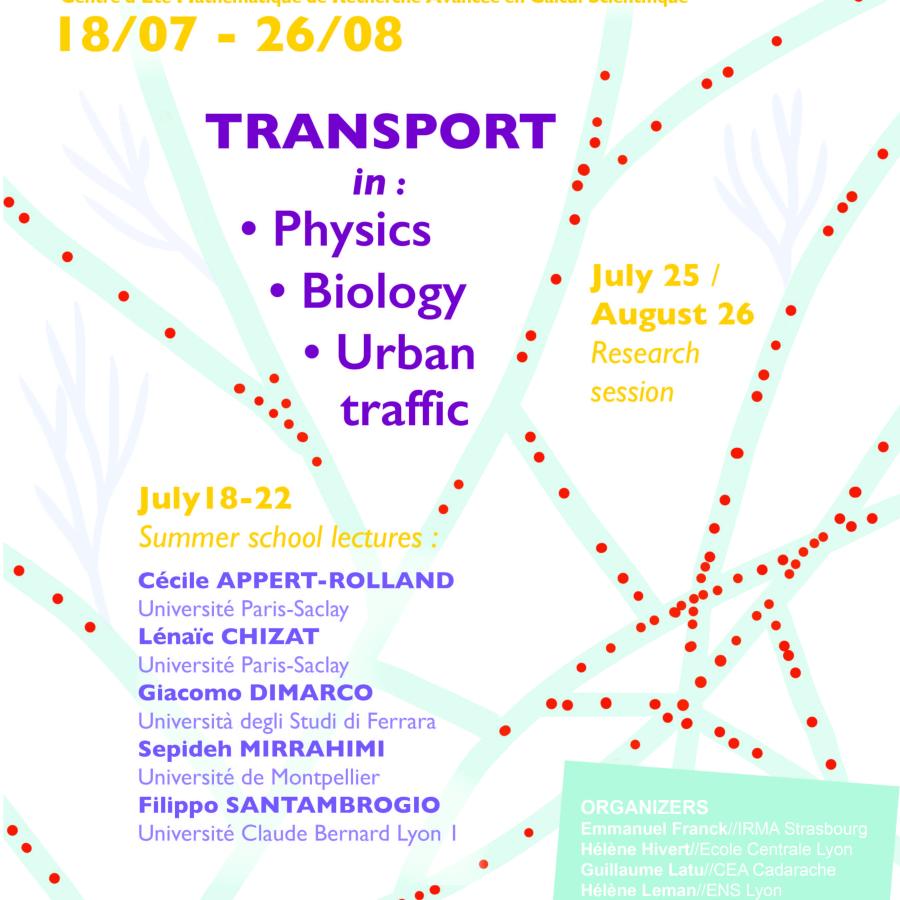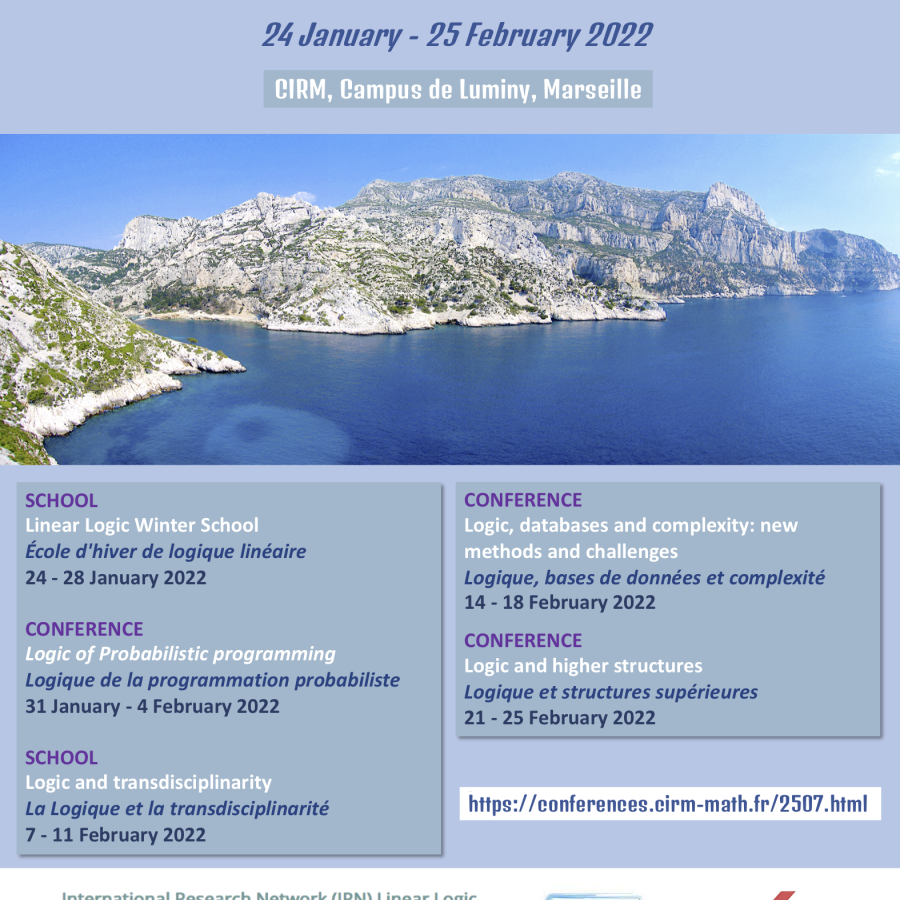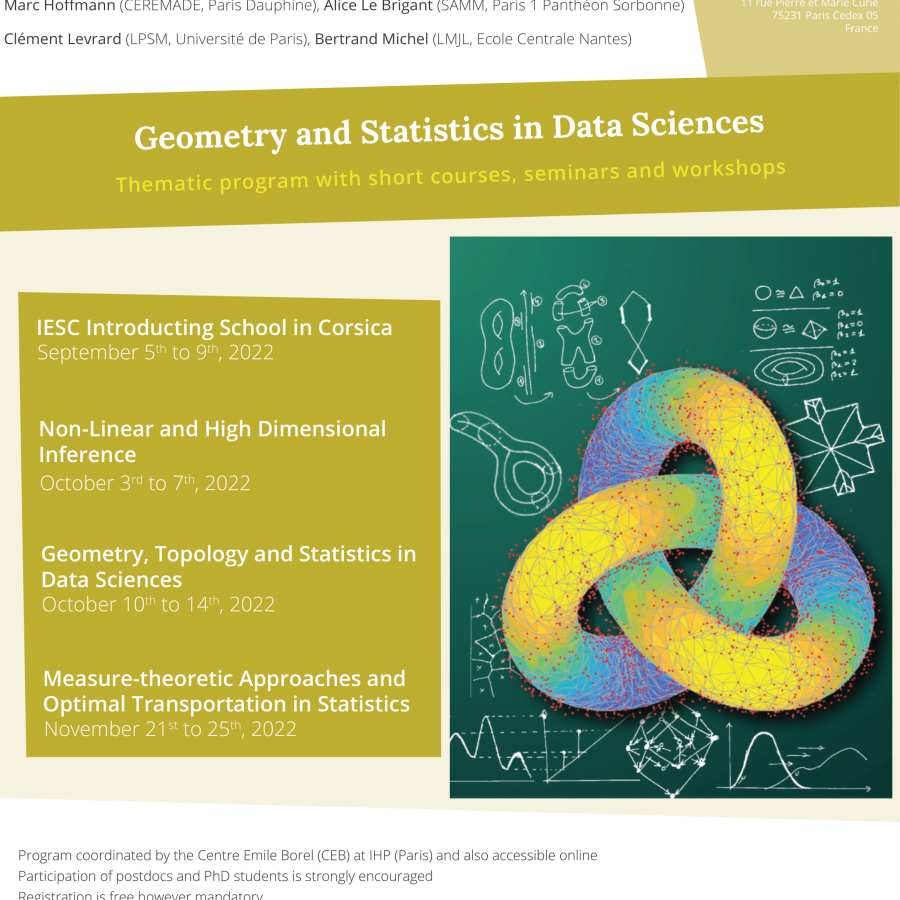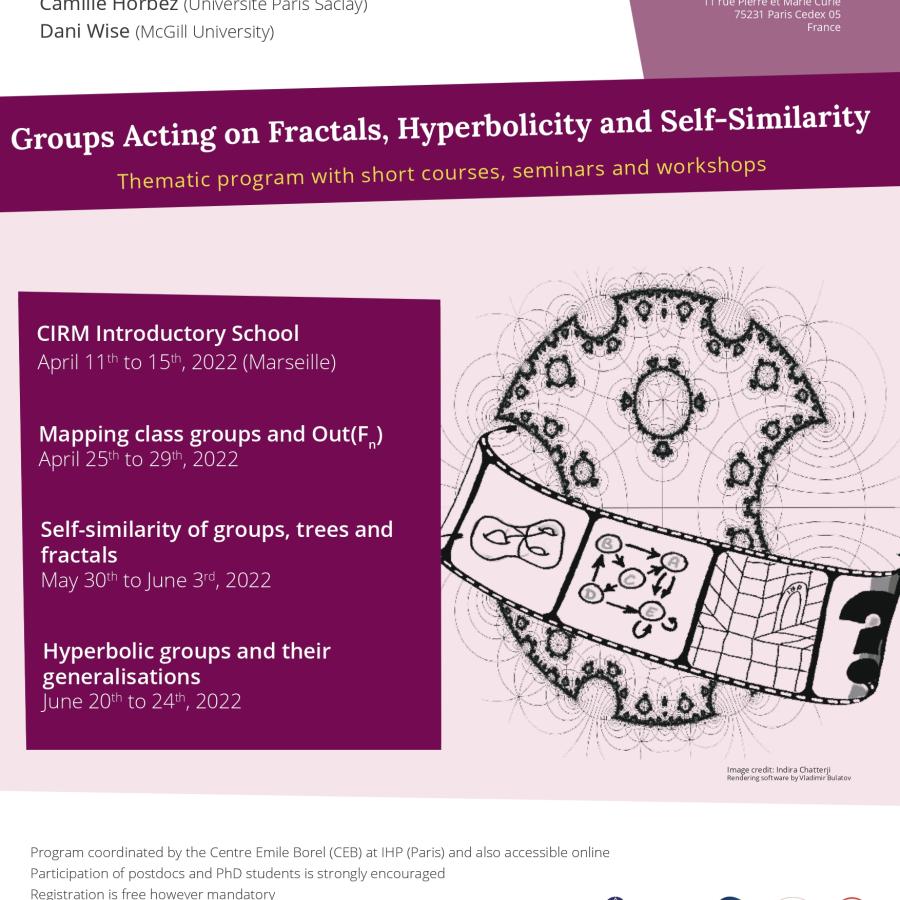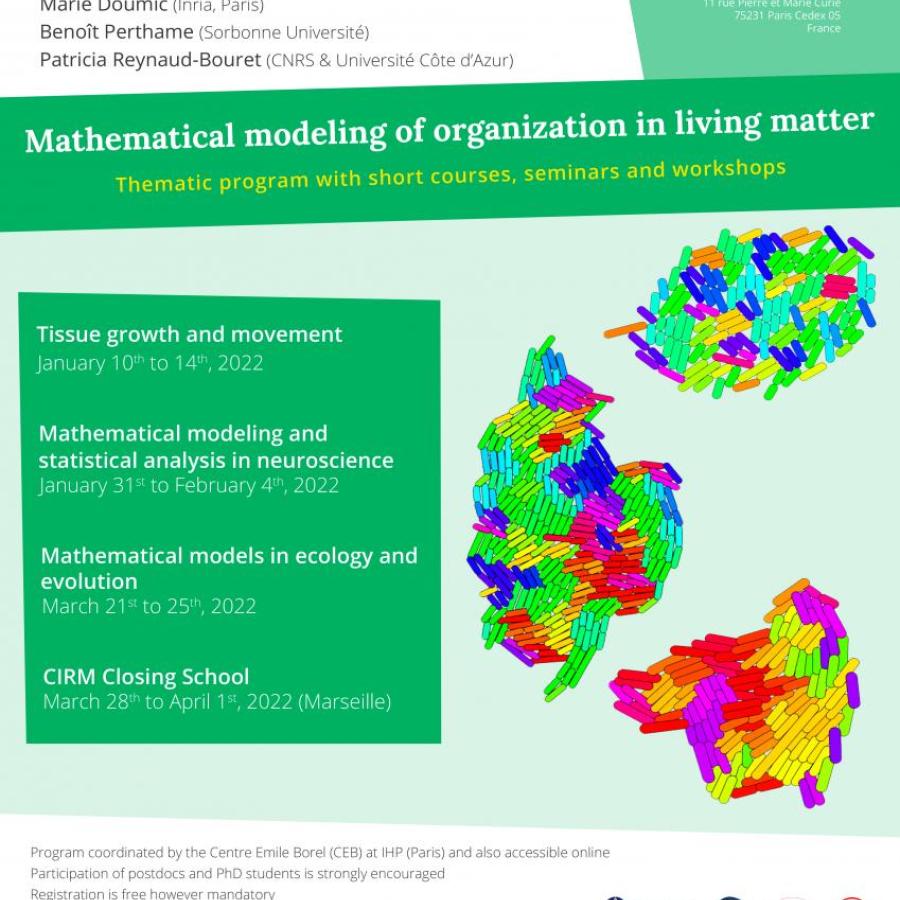The CRM opens an annual call for CRM Intensive Research Programmes (IRP) approximately two years in advance. The CRM started organising IRPs in 2003 and has held two to three per year since then. Each programme consists of a number of resident researchers, from junior to senior, and at least two scientific events (workshops, advanced courses, and conferences).
2022
Transport in Physics, Biology and Urban Traffic
The CEMRACS is a scientific event of the SMAI (the French Society of Applied and Industrial Mathematics). The concept was initiated in 1996 by Yvon Maday and Fr´ed´eric Coquel and takes place every year at CIRM in Luminy (Marseille, France) during 6 weeks from mid-July. The goal of this event is to bring together scientists from both the academic and industrial communities to work and discuss on focused topics. During the first week, a classical school is proposed. It consists of several lectures given by leading scientists and related to the topics of the research projects.
Logic and Interactions
The thematic month Logic and Interations 2022 is an event proposed by the Logique de la Programmation group of the I2M, in relation with the LIS, the PPS group at IRIF, the logic group of Roma Tre university to enumerate the main partners. The goal is to establish the state of the art, train young researchers, open new research collaborations and trails in the domain of interactions between logic, philosophy and theoretical computer science, and more precisely between proof theory and formal methods.
Méthode des différences finies et programmation Matlab
Mohamed MBEHOU
Summary:
Algebraic Number Theory I
Cécile Armana
Summary: We will present global aspects of algebraic number theory:
• Rings of integers, Dedekind rings
• Splitting of prime ideals (inertia degree, ramification), ideal class group and
class number, case of Galois extensions (decomposition group, inertia group),
• Fundamental examples : number fields, quadratic fiels, cyclotomic fields
• Hilbert class field
Théorie algébrique des nombres II : Corps p-adiques et principe local-global
Christian Maire
Summary: We will present local/glboal aspects:
• p-adic valuation and completion of Q,
• analysis in Q_p,
• algebraic extensions of Q_p,
• Hilbert symbol,
• Hass-eMinkowski Theorem.
Waves in the Atmosphere and Oceans
Khouider Boualem


